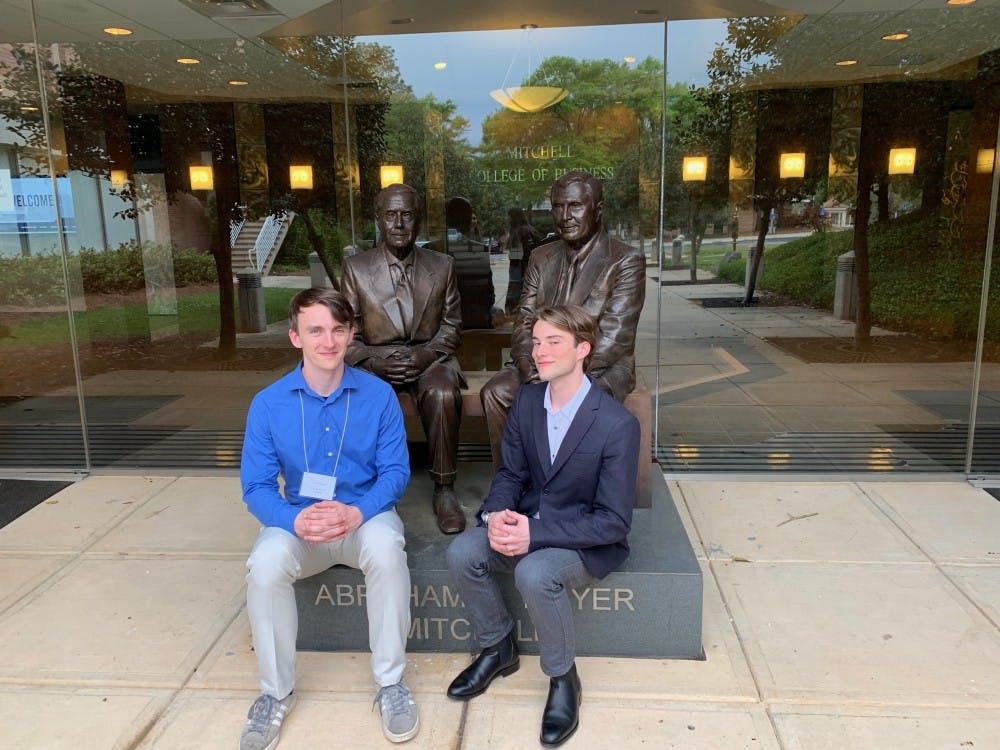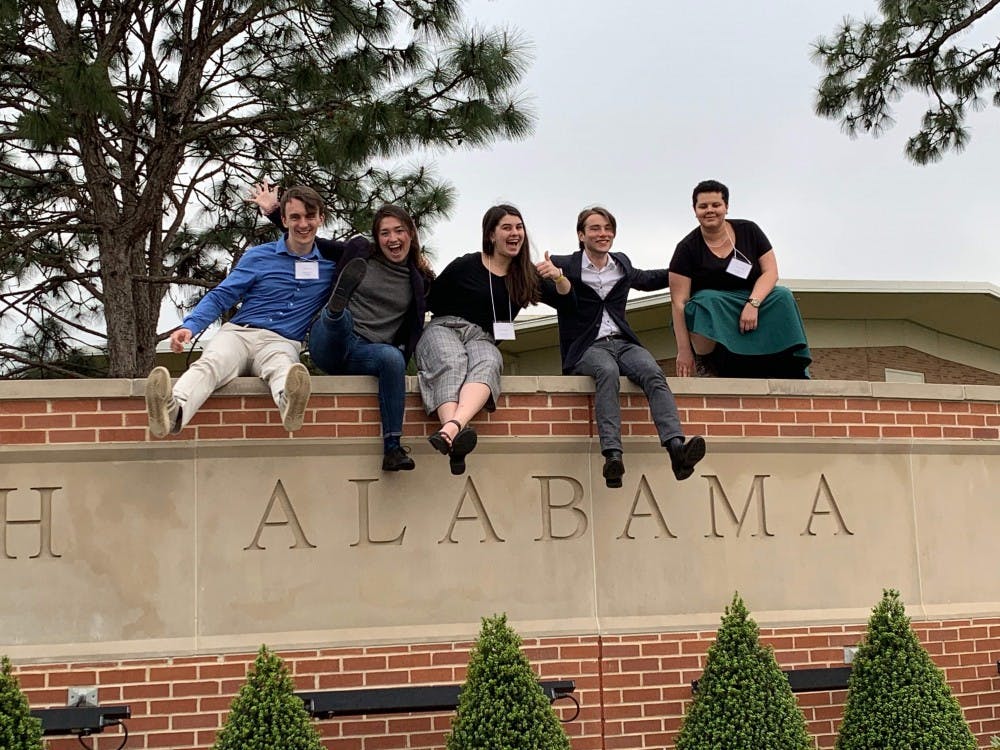Imagine you were a member of the ethics committee in a hospital. You are asked what should be done to an unconscious homeless man in his 50s, who had a big stroke a few days ago and had no surrogate decision-maker for him.
Neurologists don’t know if he’d ever gain meaningful consciousness, and the doctors aren’t sure if they should transition him to comfort care and let him die peacefully or put a tracheostomy and a feeding tube in the man and keep him in the hospital.
What would you choose?
This is an example of one of the many cases of bioethical issues presented to the University of Portland’s bioethics team at 2019 National Bioethics Bowl Championship, where they took the third place. It’s the fourth year since the creation of the team, and in the past two years, the team has returned from the Championship with two national championship wins.
“Of the three national competitions I’ve been a part of, this year was my personal favorite even though we didn’t take first,” senior mathematics and philosophy major Owen Price said.
The National Bioethics Bowl is a debate-style competition focused on ethical issues within biomedical ethics. The event is hosted every spring for undergraduate students during the National Undergraduate Bioethics Conference. This year, it took place from April 5 to April 6 at the University of South Alabama.
UP’s bioethics team includes students from a variety of disciplines and colleges of the university. The five members of the UP’s bioethics team for this year’s competition included Price, along with senior mechanical engineering major Nick Nelson, sophomore math major Clare Spinner, sophomore biology major Anya Forma and senior biochemistry major Sanuye Ford.
It was the first time that Spinner, Forma and Ford competed in a bioethics bowl, so Nelson and Price gave them some advice about what they learned from their past competitions.
“Nick and Owen have been very encouraging and kind mentors when it came to presenting cases,” Forma said. “A lot of the new members, including myself, were nervous about our first presentations, but they were really patient and helpful teachers.”

Price said that their team has two things to set them ahead from others: their balance of independent work and strength in group discussion.
“We can pick up some of each other’s slack and collaborate on forming a stance on an issue, but we aren’t entirely codependent,” Price said. “I don’t think other teams strike that balance quite as well as we do.”
Forma says that the team worked very well together this year. They have been very supportive of each other’s arguments, and it’s what made them feel confident in what they presented.
“I really appreciated the whole vibe that the team had this year,” Forma said. “We spent the majority of the trip laughing and smiling and it was just a really good atmosphere to be in.”
This year UP’s bioethics team coach and assistant professor of philosophy Paddy McShane couldn’t attend the bowl with her team because of her pregnancy, but she did her best to support them during preparation processes.
“I really cannot overstate how much is owed to Paddy McShane. We’d be a glorified book club without her if the team would even exist,” Price said.
McShane founded UP’s bioethics team four years ago when she joined the faculty. She previously coached a bioethics team at Georgetown University when she went to a graduate school there.
“It was a very formative experience, so I wanted to offer that experience to the students here as well,” McShane said.
To prepare for the National Bioethics Bowl, competing teams receive a case packet a few months before the event with 15 different bioethical issues about topics like genetically modified babies, artificial human egg cells and prohibition of artificial trans fats. This year’s case packet is available online. The teams are not preassigned positions on the topics, so the students take on a position that they genuinely endorse, even if the positions overlap with the other teams.
After UP’s team received the case packet in February, they spent four hours every week meeting and working on it. The team spent an ample amount of time and energy to build their arguments.

McShane says that the team for her is a constant reminder of all she loves and respects about UP students.
“One of the real strengths of our team is reflective of the strengths of UP and it’s that it’s pretty interdisciplinary,” McShane said. “They are genuinely curious, they are very collaborative, and they are really good at working together to help each other build positions and they carry that into the competition.”
She said that everyone is welcome to join the bioethics team, even the students who aren’t necessarily interested in competing but still want to talk about medical ethics.
“The more the merrier,” she said.
If students have any questions or would like to get more information about getting involved with the team, they can contact McShane at mcshanep@up.edu.
“[The team] has really challenged me to think outside of the box and acknowledge different perspectives,” Forma said.








